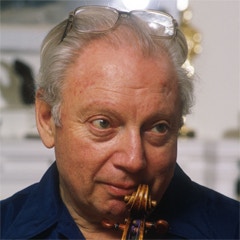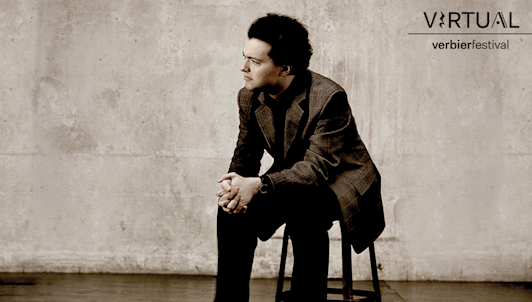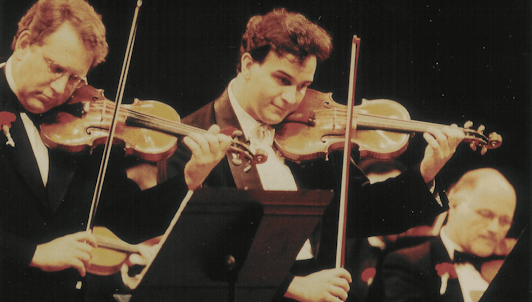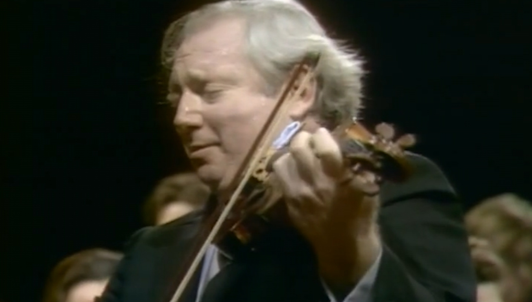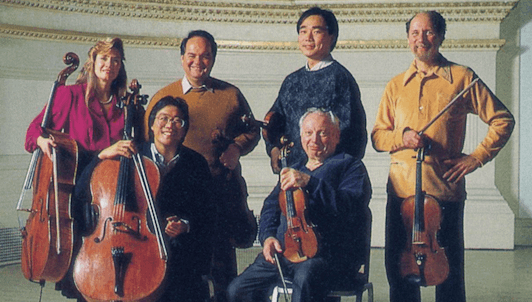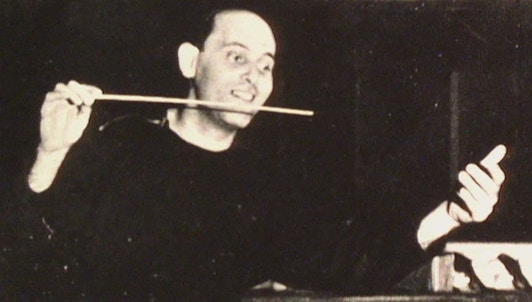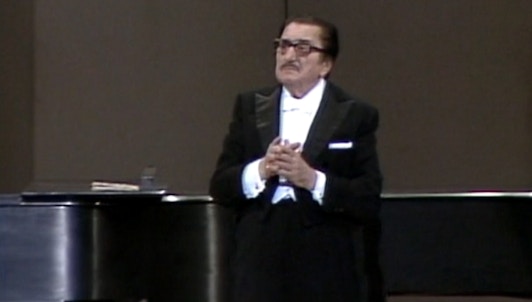Isaac stern was born in Kremenetz, Ukraine, on July 21, 1920. At age 15, he performed J. S. Bach's Double Concertoon stage with his teacher. The following year, in 1936, he played the Brahms concerto with the San Francisco Symphony Orchestra under Pierre Monteux, then the Tchaikovsky concerto in Los Angeles under Otto Klemperer. On October 11, 1937, he made his New York debut at Carnegie Hall, a concert-hall where he again appeared in February 1939. This new public appearance was hailed by enthusiastic critics, placing him at the forefront of musicians of his generation.
In January 1943, Isaac stern gave his first Carnegie Hall recital. The following year, he appeared twice with the New York Philharmonic Orchestra conducted by Dimitri Mitropoulos. In 1945, he made his first recordings for Columbia, and the following year, he was chosen by Hollywood to double the violin parts for the actor John Garfield in Humoresque. This launched his career, and thereafter he went on to play with the greatest conductors : Sir Thomas Beecham, Dimitri Mitropoulos, Bruno Walter, Eugene Ormandy, Leonard Bernstein and George Szell. He played the part of Eugène Ysaÿe in the film Tonight We Sing relating the life of the great impresario Sol Hurok. In 1948, he made his European debut at the Lucerne Festival. In 1950, he took part in the first Prades Festival, organized with Pablo Casals by Alexander Schneider to celebrate the 200th anniversary of J. S. Bach's death. He again appeared with Casals during the following years in Perpignan and Prades, and a few years later at the Puerto Rico Festival.
His meeting with the famous cellist was a determinant influence and led him to devote part of his activity to chamber music, with Eugene Istomin, Alexander Schneider, William Primrose or Paul Tortelier. In the early 1960s, he organized a trio with Eugene Istomin and Leonard Rose, which became extremely successful and toured widely until Rose's death in 1984. In 1956, during the cold war, he was also one of the first US musicians to tour widely in the USSR. On the other hand, contrary to Yehudi Menuhin, he always refused to play in Germany, in memory of the atrocities committed under nazi rule. He had very strong ties with the State of Israel and collaborated assiduously with Israelo-American cultural centers and foundations, providing advice and support to young musicians in that country. He thus played an important role as a pedagogue and mentor for young Israeli virtuosi as Itzhak Perlman, Pinchas Zukerman, Myriam Fried, Sergiu Luca or Shlomo Mintz.
In addition to his activity as a violinist, Isaac stern participated intensively in American musical life, making important contributions as music director for the National Council for the Arts. Since 1960, he has also been Chairman of Carnegie Hall, that prestigious concert-hall which, with others, he saved from demolition. In 1979, he made a trip to China, and the film relating this event From Mao to Mozart was awarded an Oscar in 1981. Many contemporary works were composed for Isaac stern, including William Schuman's Concerto in 1950, Leonard Bernstein's Serenade in 1954, George Rochberg's Concerto in 1975, Penderecki's Concerto n°1 in 1977, Dutilleux's Concerto in 1985 and Maxwell Davies 's Concerto in 1986. In 1987, Isaac stern formed a new trio with Yo-Yo Ma and Emanuel Ax, which performs and records in company of such artists as Jaime Laredo and Cho-Liang Lin. Due to his fiery temperament, unique generosity of tone and fascinating musicianship, Isaac stern has achieved the ideal balance between the virtuoso and the musician. A symbol of American violin playing for over 50 years, he is also one of the greatest 20th century masters.
